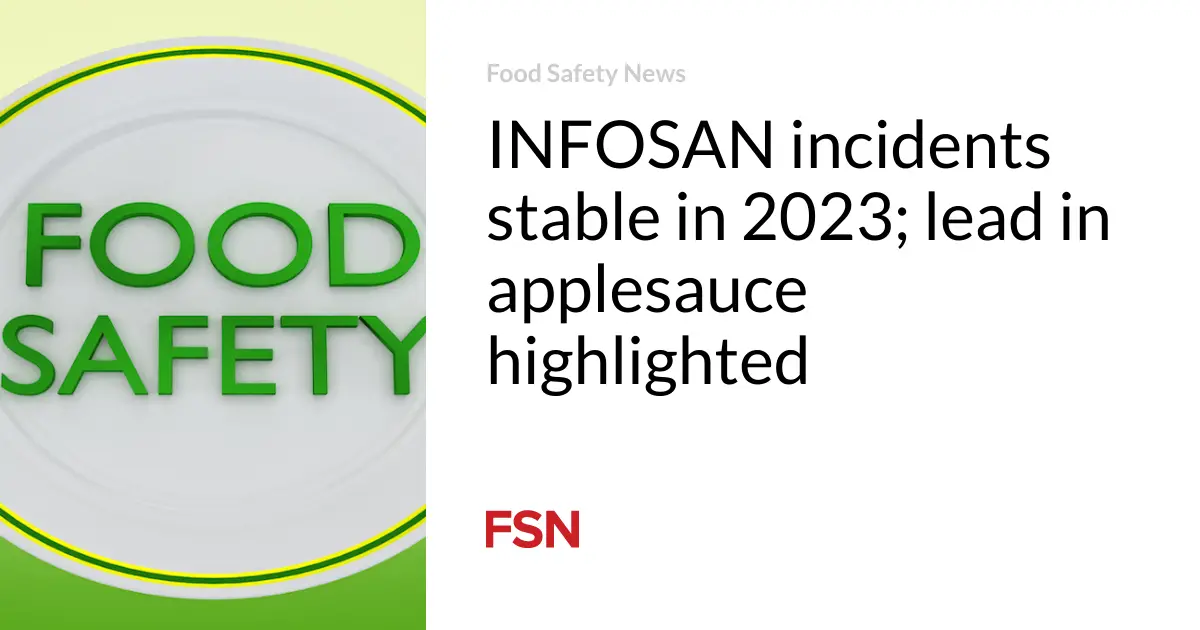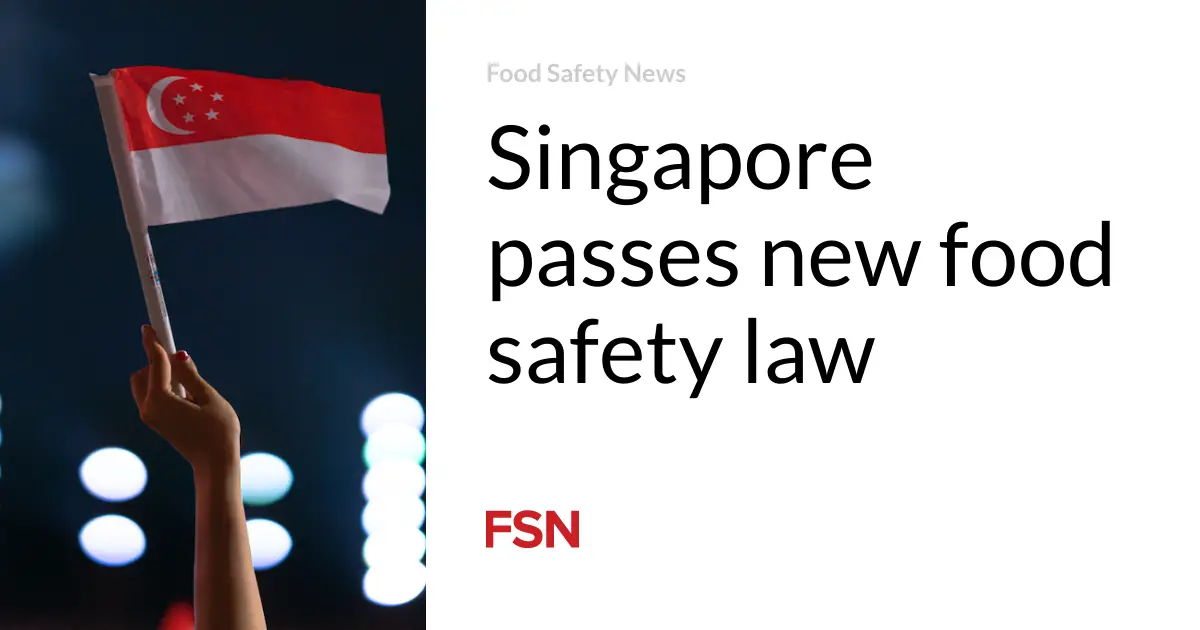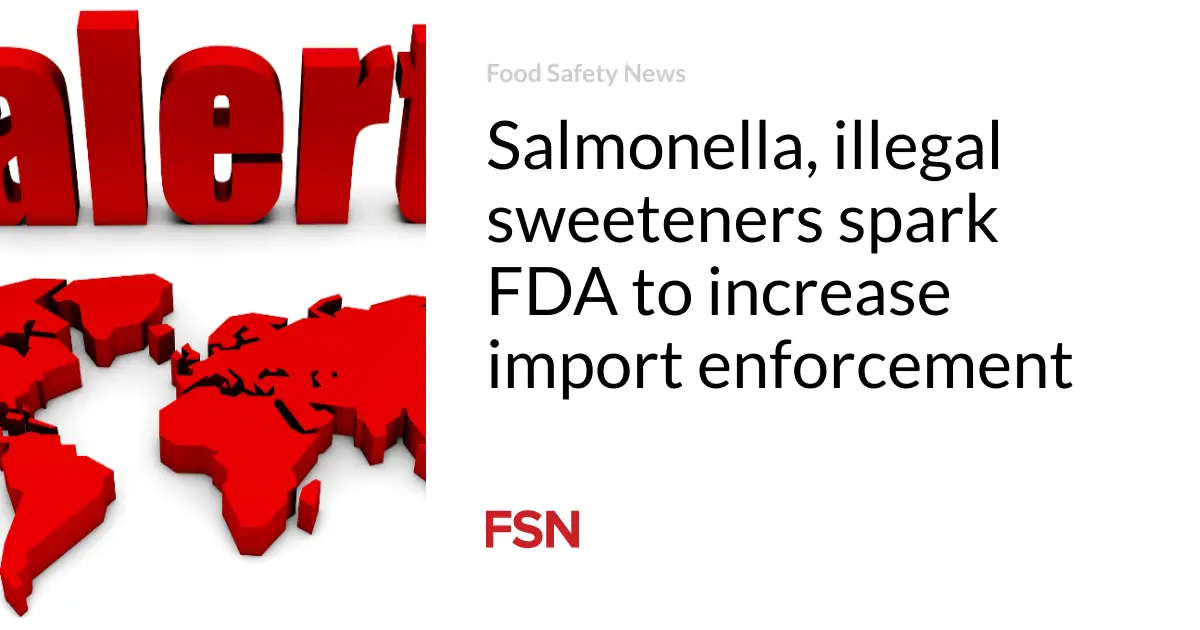
The number of incidents involving a global food safety network increased slightly in the final quarter of 2023.
The International Food Safety Authorities Network (INFOSAN) was involved in 51 alerts from October to December 2023, up from 46 in July to September, 53 in the second quarter, and 47 in the first quarter of 2023.
The network was involved in 197 incidents in the whole year, which is almost identical to the 198 alerts in 2022. This is down from 248 events in 2021 but up from 127 in 2020 and 84 in 2019.
The latest figures show that of 34 biological hazard incidents, 13 were caused by Listeria and 10 by Salmonella. Three were caused by E. coli. Bacillus Cereus and Cronobacter were both listed twice, while Clostridium, mold, Staphylococcus aureus, and Vibrio were all mentioned once.
INFOSAN is managed by the World Health Organization (WHO) and the Food and Agriculture Organization (FAO) of the United Nations.
Eight chemical hazards involved lead, aflatoxins, CBD, cyanide, histamine, and mercury. Two mentioned an undeclared allergen or ingredient; seven were from a physical hazard such as plastic, metal, or glass.
Lead in applesauce event
INFOSAN highlighted an investigation into lead in certain cinnamon applesauce products.
In November 2023, the INFOSAN emergency contact point in the United States told the INFOSAN Secretariat of a recall in the U.S. of applesauce products containing cinnamon from Ecuador due to high lead concentrations.
The Centers for Disease Control and Prevention have reported 519 people impacted by the outbreak, which has spread to 44 states. The FDA has collected 90 related adverse incident reports.
Three brands of cinnamon applesauce were recalled in November 2023 because of lead contamination: Wanabana, Schnucks, and Weis. Negasmart is the supplier of cinnamon to the Ecuadorean applesauce manufacturer Austrofoods, while Carlos Aguilera is the processor of the cinnamon sticks sourced from Sri Lanka.
The INFOSAN Secretariat contacted officials in Ecuador for information about the potential wider distribution of recalled products directly from Ecuador. Some products were also sent to Cuba and the United Arab Emirates. No other adverse health events linked to recalled product consumption have been reported to INFOSAN.
Final quarter details
The food categories commonly named in all incidents during the fourth quarter of 2023 were composite milk and dairy products, snacks, desserts, and other foods, fruit, and fruit products, fish and other seafood, meat, and meat products, and vegetables and vegetable products.
The alerts also mentioned nuts and oilseeds, cereals and cereal-based products, composite food, food for infants and small children, herbs, spices and condiments, starchy roots and tubers, alcohol, and non-alcoholic beverages.
Overall, 40 percent of incidents were reported to INFOSAN by network members, 41 percent were communicated via the European Commission’s Rapid Alert System for Food and Feed (RASFF) portal, and 19 percent through various other WHO channels.
In November 2023, Guyana authorities participated in a two-day virtual workshop to strengthen their participation in INFOSAN. A simulation exercise provided participants with an example of a food safety emergency.
Afghanistan’s national authorities joined INFOSAN in November 2023. To assist with engagement in the network, the INFOSAN Secretariat organized an introductory webinar for the new members.
Also, in November, INFOSAN members in the Americas met to discuss how to continue strengthening their work. One focus is improving coordination and communication for food safety emergency response at the national and regional levels.
In December, INFOSAN members in the Asia-Pacific region met at WHO headquarters in Geneva, Switzerland. Topics covered improving communication between members and the INFOSAN Secretariat and harmonizing emergency response and preparedness approaches.
(To sign up for a free subscription to Food Safety News, click here)







